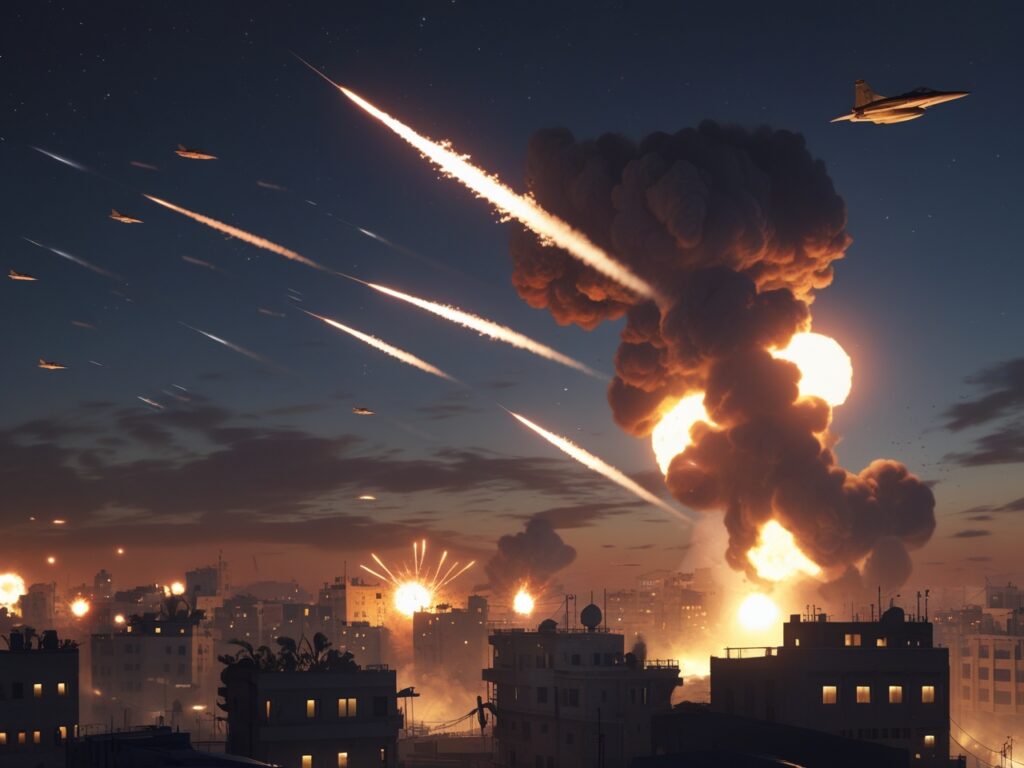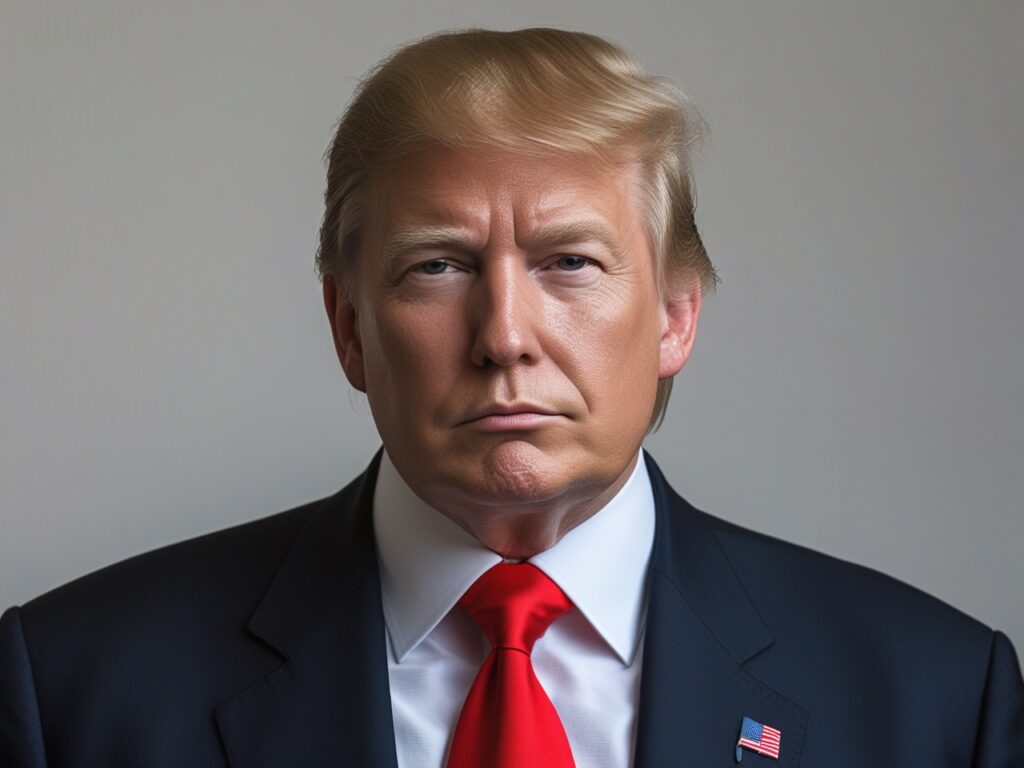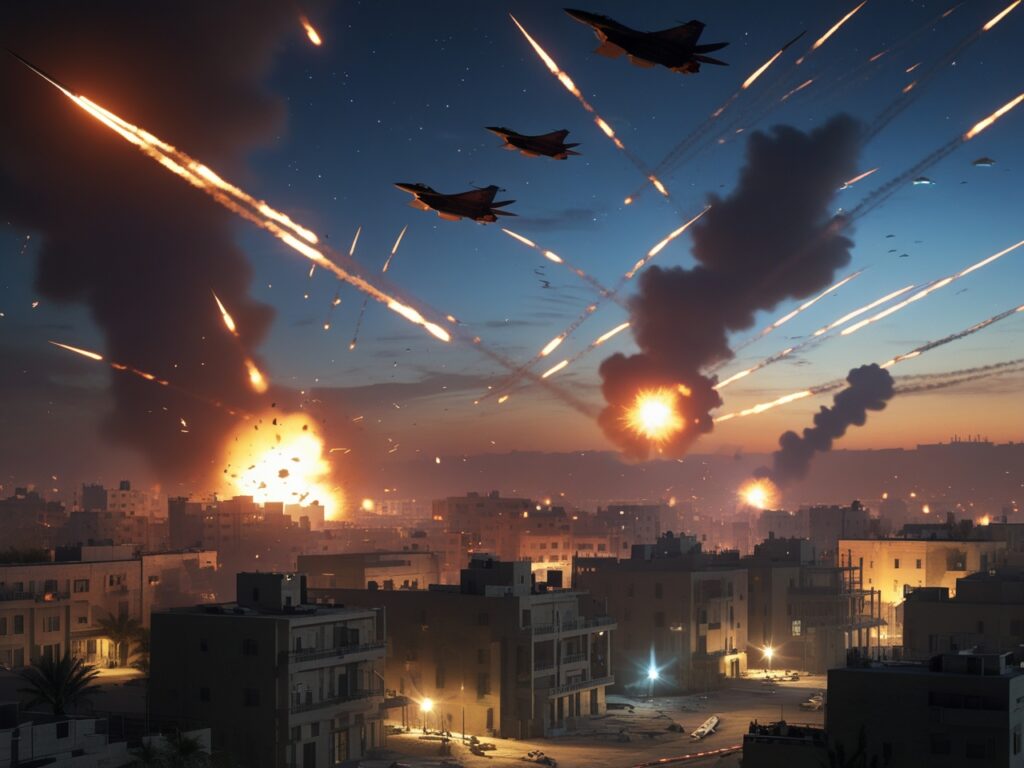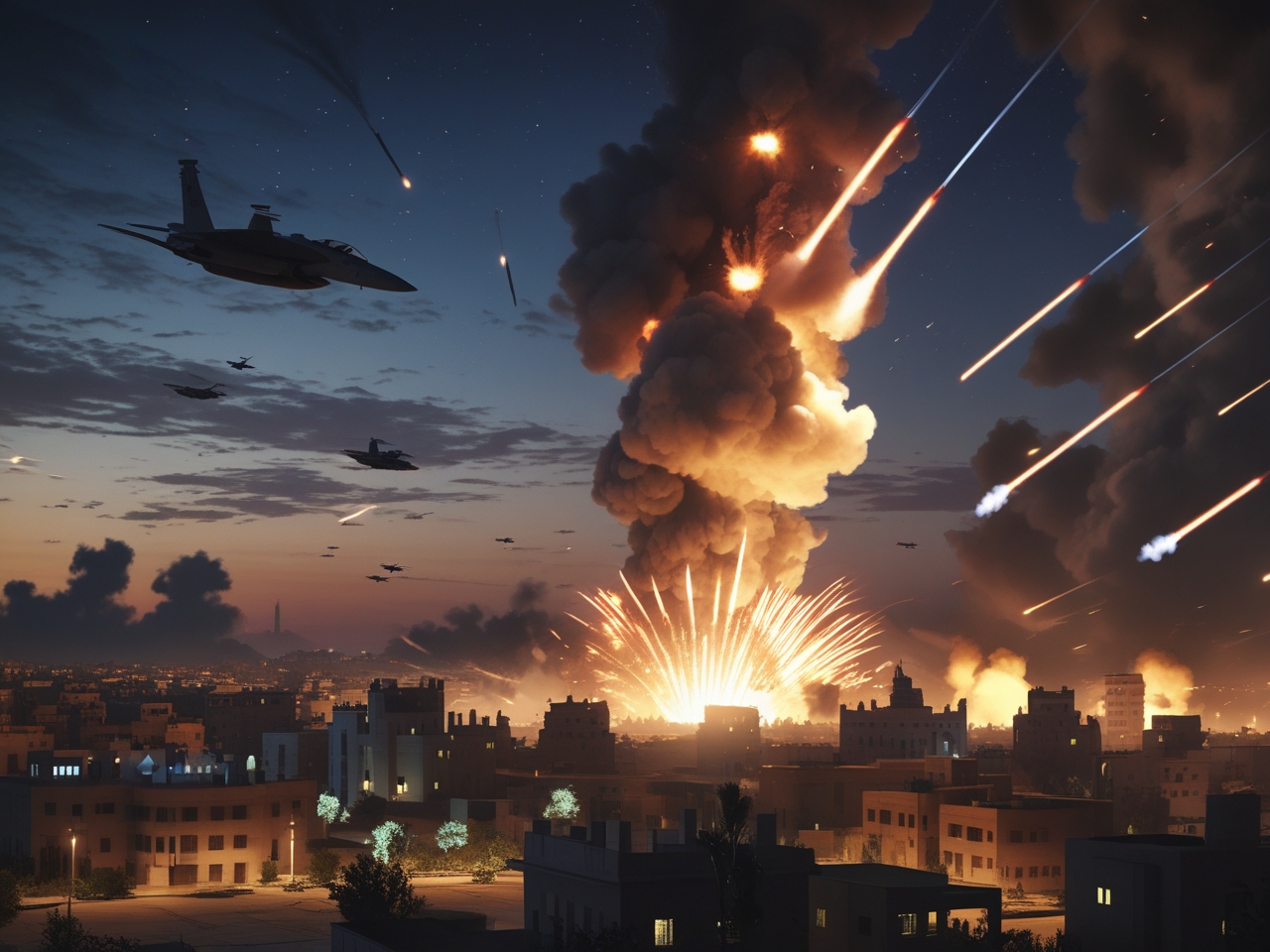June 19, 2025
The Israel-Iran conflict has reached new levels of fighting, with the ongoing air strikes and fierce rhetoric adding to the tension in the Middle East! In recent weeks, both nations have endured horrible missile attacks, against strategic and military targets, no clear end in sight from either side, and both sides also have made remarks that show no indication of willingness to cease hostilities. The renewed violence around the Israel-Iran dispute raises flags to the rest of the globe to be wary of the fight turning into a wider regional war. World leaders restate the need for de-escalation.

A Surge in Aerial Bombardments
The most recent round of escalation began on June 14 when Iran fired over 200 ballistic missiles at Israel with the focus on major cities such as Tel Aviv and Jerusalem. The attack came after what Iran described as an “unprecedented” airstrike on Iranian territory by Israel, which allegedly resulted in the deaths of various military officials and nuclear scientists. In Israel, sirens blared, and as detonations lit up the night sky, the Israeli Defense Forces (IDF) intercepted most of the incoming missiles. There were at least three deaths reported in Israel and significant damage to infrastructure.
Israel responded with multiple strikes on Iranian military targets and possibly nuclear facilities. On June 18, missiles could be seen flying across the skies over the Tel Aviv Region and the West Bank, as each side continued to strike each other in an apparent cycle of retaliation. State-run news in Iran claimed the launches of missiles were “precisely proportional,” whereas the Israeli Prime Minister would vow to eliminate any threats to national security. This tit for tat strikes leaves the region very tense, with civilians in both countries bracing for additional deliverables.
A War of Words
Outside the battlefield, a war of words has been waged. According to Iran’s Supreme National Security Council, it has intelligence that shows “Hidden nuclear facilities in Israel” and that if Israel targets any Iran nuclear sites then Iran will respond immediately. Meanwhile Israeli officials accused Iran of pursuing a secret goal of developing nuclear weapons. Tehran rejected the Israeli accusation. Both the allegations enacted further elements of distrust and both equally culpable parties accentuate they are acting out of national security.

In the midst of the conflict on June 16, U.S. President Donald Trump commented that the situation “could be ended easily” and offered no plan. The U.S. has been paying attention to the emerging reports that Israel may want to attack Iran’s nuclear facilities without the permission of the United States and, thereby thwarting diplomatic considerations. The UN and other countries have attempted to restrain both Israel and Iran but neither side is prepared to walk away.
Regional and Global Implications
The Israel-Iran conflict is driven by decades of ideological and geopolitical conflicts, by not only will affect the countries in the Middle East starts to draw in Lebanese and Syrian forces, with Hezbollah, an Iranian-backed militia, increasingly clash with Israeli forces along the border. The potential for a wider regional conflict is significant and will definitely pull in global powers like the U.S., Russia, and China.
The oil markets have already felt the effects of the destabilization in the Middle East regions with prices surging on fears of supply disruptions through the Persian Gulf. Analysts warned that an extended conflict will spark a global energy crisis that will enhance many of the already existing economic threats across the world.
The humanitarian needs are increasing; thousands of displaced persons are found in border areas with an alarming rise in civilian casualties.

Path to De-Escalation?
As the Israel-Iran conflict continues and diplomatic communication remains limited. Diplomats in Europe have attempted to mediate a ceasefire but their efforts have been inconclusive thus far– with both sides clearly articulating prerequisite conditions for discussions. Iran wants an end a cessation of offensive strikes from Israel as well as recognition of its right to any operational and defensive self-defense, while Israel is demanding an end to Iranian support of proxy organizations such as Hezbollah and Hamas.
Analysts suggest that while the first steps towards resolving the conflict may happen through backchannel negotiations with impartial 3rd parties (Qatar or Oman) while all parties remain in lockdown, a meaningful path towards resolution will remain ever challenging once both are engaged in the high stake standoff we see today. The international community waits and watches as the situation teeters on the brink of greater war and destruction throughout the Middle East.

